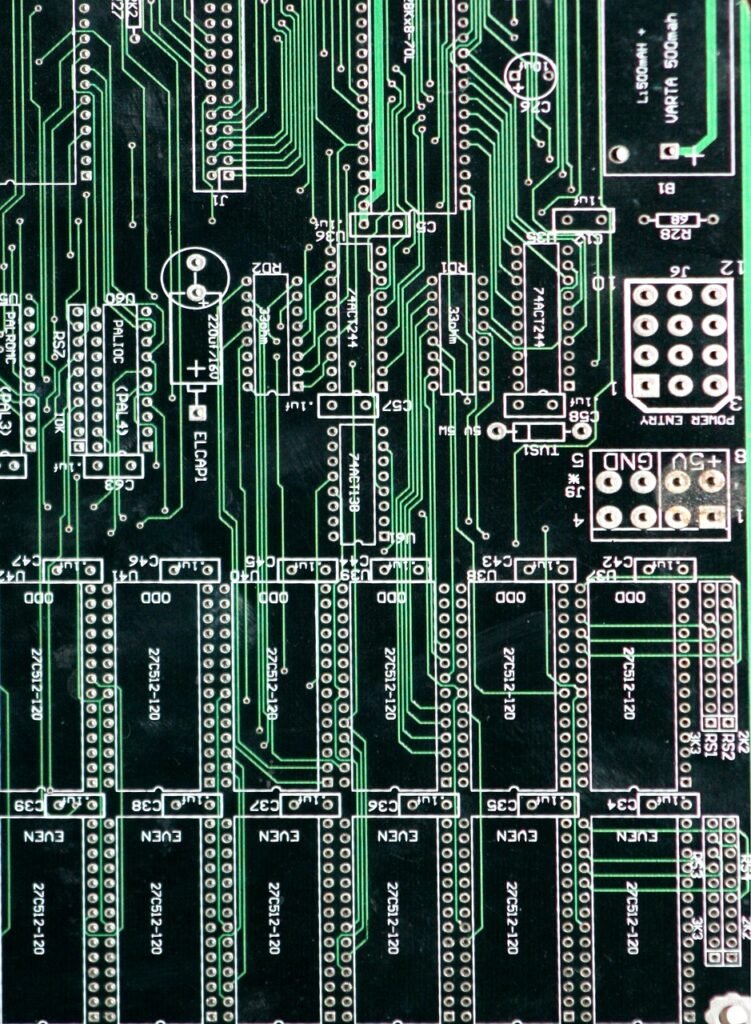Nvidia chief Jensen Huang and Meta chief Mark Zuckerberg in the meantime shone the spotlight on an interesting future that beckons for personal technology and social media at Siggraph last week. Their conversations avoided most of the earth-shaking surprises, but there were scintillating topics of consideration-perhaps on how AI plays in shaping both Facebook and personal tech in future. The revelations of the two giants contrasted in looking further into the advancements of technology toward the future-possibility in one, while the other gave more reasoned coldness on what can be done.

Zuckerberg’s Transformation and the Future of Social Media
It is clear watching Zuckerberg and Huang talking that Mark Zuckerberg is not really that robotic face image one has somewhere in mind. Gone, it seems, is the stiff demeanor, replaced with a more relatable and approachable version of himself. Ah, this time not only smarts but genuine personhood seem to exude from this highly cultivated individual, an important achievement that has probably taken quite an effort. This is a total departure from his usual robotic public image. His people skills have improved significantly. It makes him much more relatable and human, a transformation that could probably resonate well to both consumers and the wider tech community.
This transition was apparent in their conversation on the future of personal technology, with special focus on the changing position of augmented and virtual reality (AR/VR). Zuckerberg and Huang discussed how advanced AR/VR headsets could be the next computing device after the smartphone. With conversational AI-powered and natural language interfaces, this evolution might even replace the smartphone altogether, with humans merely conversing with their devices, be it through smart glasses or lightweight headsets where the display is positioned directly across one’s eyes, AI functioning as their guide through the world.
The Evolution of Personal Tech: Moving Beyond Smartphones
In synergy, Zuckerberg and Huang offered scenarios for a future where smartphones as we know them may eventually fade into obsolescence. AI-powered, voice-driven interfaces might soon be an overshadowing presence over the GUIs of phones and earliest computers. Imagine an intelligent device worn as glasses, allowing you to keep your hands free while interacting with the world around you. The device detects any obstacles that may come in front of you, warns you about any impending cars, and aids you in maintaining your balance-all while being incredibly lightweight and unobtrusive.
They are being trained up on data right up until October 2023.
Zuckerberg admits to the fact that the effectiveness of the current generation of AR/VR devices has some loopholes, especially with regard to Apple’s Vision Pro which has vast features but nothing remotely close to or as light as what consumers would expect in such devices, a form factor similar to eyewear. In the meantime, Zuckerberg argued for the future that there would be something on similar lines as the Ray-Ban Meta Smart Glasses, but upgraded in terms of display capabilities and lighter weight with a balance between functionality with comfort. While it’s not the time yet for the technology into being ready for it, the eventual aim will be a powerful yet practical device of the new generation, which could change how we relate to the digital world.
AI’s Role in the Future of Facebook
Zuckerberg’s mention of AI-rich recommendation engines for e-commerce is perhaps the most troubling aspect of the discourse, which harkened back to earlier failures. In several ways, it resembled some of the mischief Netscape perpetrated in the early days of their foray into enterprise software. There was innovation in Zuckerberg ‘s move to e- commerce through AI recommendation engines; however, that thrusts questions on whether Meta is another ingredient in the repute recipe by failing to build trust in enterprise buy. This was a different brand and reliance that enterprise software needed but that Meta could have had fully established in that sector.
Well that could also prove promising to improve the social features of Facebook with AI. If AI somehow could indicate product, services, and sometimes even people on the same matter, it would turn Facebook into really a social networking site. Envisage a future where Facebook would help you identify the products you didn’t know you needed and could actually link you with people who have never known each other but share common interests.
If understood correctly, AI can turn Facebook into an even better one for an individual inclined to loneliness by bringing them together with others who have the same nature, interests, or experiences. This integration of intelligent interaction would take Meta further to ensure that what it is building is not just a tool to scroll away in but a means to build the kind of real-realm relationships.
Potential of Digital Humans
This is certainly one of the most exciting aspects of their conversation-the concept of digital humans. It is something both Zuckerberg and Huang have been considering. Two possible aspects of this conceptualization-capturing oneself when one is too busy, and bringing in a mediator for those who are socially scarce-would be huge. Digital humans may be important for making lives better-at least for some of the people who need companionship, access to learning, or even just a channel for social communication.
This whole idea of digital selves also probably fits into the larger picture of artificial intelligence and personal technology, where virtual assistants can take care of tasks on our behalf but also serve as a guide toward self-improvement in us. AI-enabled digital humans could dramatically change the way people are interacting with technology, creating entirely new ways of collaboration and growth.
Will Meta Avoid Past Mistakes in the Road Ahead?
The talks between Jensen Huang and Mark Zuckerberg starkly contrasted their different mindsets: Huang is interested in the core development of AI technology, whereas Zuckerberg is interested in its application in real-world cases, particularly in social media and personal technology. These contradictory views point to a rough path ahead for Meta, which must deal with the pitfalls of its past mistakes but wants to innovate.
More importantly, Zuckerberg has a responsibility to his investors to ensure that Meta does not suffer the same fate as other tech companies, such as Netscape, which failed in the enterprise arena. If AI is useful to Facebook, then the company has a very bright future indeed; AI can enable Facebook not just with smarter ads and deeper recommendations but also with more meaningful things that can help people connect better, overcome loneliness, and enhance their social experience.
Conclusions: Peek into the Future
The Siggraph conversation between Jensen Huang and Mark Zuckerberg has made apparent the future of personal technology and social media. Arguably, the most significant takeaway from the conversation is that smartphones would be replaced by lightweight AR/VR headsets or smart glasses, which would prove again the possible AI transformation of social media sites into more meaningful connection-driven experiences. Of course, the future of Meta is still vague, particularly now that its venture into enterprise e-commerce has begun, but certainly, there is no doubt regarding the effects AI will have on the design of personal assistants and future social platforms.
All tech aficionados and everyone else interested should watch this technology evolve as it can alter a lot of things in how we interact with the digital world. Whether Zuckerberg and his company can at last manage to steer clear of classic pitfalls or chart new paths is still open-ended, but it is no longer in doubt that the reality of personal technology is on the way-and going to change everything.
New Technologies Product of the Week: Chilipad Pro
Let’s face it: Chilipad Pro is everything for people like us who cannot manage sleep without keeping something hot at bay. Usually used without air conditioning, this cooling mattress pad works with your body’s water-using system to keep you cool during sleep. Perfect for that time of hot, sticky nights when you want to sleep sound but still racking up your energy bill.
Sleeping next to me would be very uncomfortable for most people, especially if they got to be tied up in Chilipad Pro. Not only does the system manage water circulation in you to keep you cool, but also presents accessories that would check your sleep quality. Admittedly, it’s a commitment, but definitely one of the best you can make towards enjoying cooler, more restful nights under the covers.

